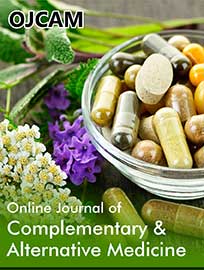 Research Article
Research Article
Potential Use of Natural Ingredients as Alternative Chemical Wash
Naresh Shahi1 and Byungjin Min2*
1Department of Integrative Biosciences, Tuskegee University, USA
2Department of Food and Nutritional Sciences, Tuskegee University, USA
Byungjin Min, Department of Food and Nutritional Sciences, Tuskegee University, Tuskegee, AL, USA.
Received Date: November 20, 2019; Published Date: January 13, 2020
Abstract
Proper washing treatment of fresh produce plays a critical role to reduce or minimize microbial contaminations for safe consumption. This study investigated antimicrobial activities of plant-based ingredients as an alternative wash to substitute chemical wash. From the preliminary test, five solutions: 1) 0.5% white distilled vinegar (DV); 2) 25% crude lemon juice (LJ); 3) DV + 0.1% origanum oil (DVO); 4) LJ+ 0.1% origanum oil (LJO) and 5) DV+ LJ + 0.1% origanum oil (DVLJO) and sterile water (control) were selected. To evaluate antimicrobial activities against foodborne pathogens both L. monocytogenes and S. Typhimurium zone of inhibition (ZOI), minimum inhibition concentration (MIC) and minimum bactericidal concentration (MBC) were measured. In addition, model study in an aqueous solution was designed to determine effective washing time against tested microorganisms, and it was performed at 2, 5, 15, 20 and 25 min. MICs and MBCs of natural ingredients against L. monocytogenes and S. Typhimurium were 0.03 to 0.78% and 0.06 to 1.56%, respectively, but higher concentration was required for lemon juice extract (12.5%). The combined treatment DVLJO exhibited the least MIC (0.03%) as well as MBC (0.06 %) against L. monocytogenes. The results indicated that combination of wash solutions reduced bacterial populations by ~3 to 5 log CFU/mL at 25 min of agitation. However, there were no significant differences in bacterial reductions by washing time between 5 and 25 min (P>0.05). Based on the results, it is suggested that combinations of vinegar, lemon juice and essential oil might be suitable as an alternative antimicrobial wash solution for raw or minimally processed foods. It is thought that formulated wash solutions with natural ingredients are readily available and easy to use at the house-hold level. However, further study is recommended to validate and specify the effectiveness of wash solutions in a real food system.
Keywords: Vinegar; Essential oil; Natural antimicrobials
Abbreviations: ATCC: American Type Culture Collection; CFU: Colony-Forming Unit; DV: White Distilled Vinegar; DVO: DV + Origanum Oil; LJ: Crude Lemon Juice; DVLJO: DV+ LJ + Origanum Oil; EO: Essential Oils; LJO: LJ+ Origanum Oil; MBC: Minimum Bactericidal Concentration; MIC: Minimum Inhibitory Concentration; OD: Optical Density; TSA: Tryptic Soy Agar; ZOI: Zone of Inhibition
-
Naresh Shahi, Byungjin Min. Potential Use of Natural Ingredients as Alternative Chemical Wash On J Complement & Alt Med. 3(2): 2020. OJCAM.MS.ID.0005556.





